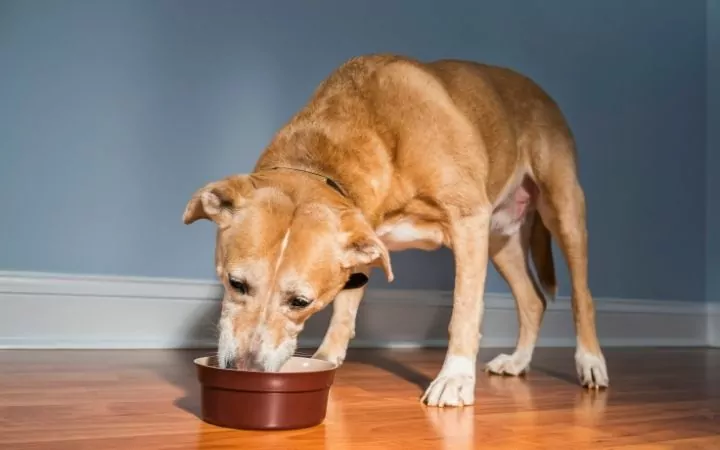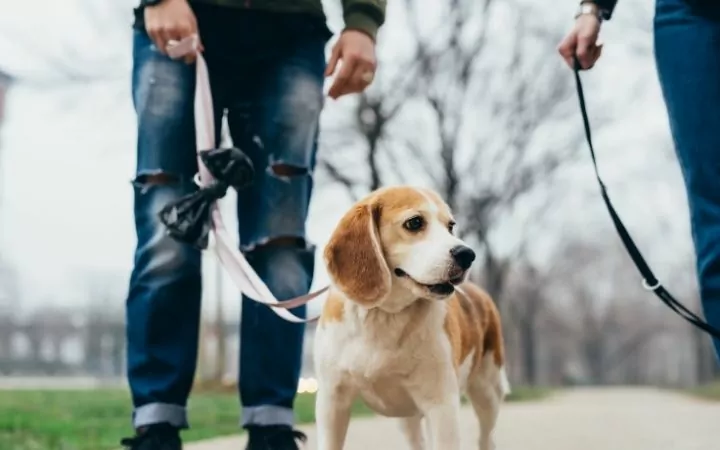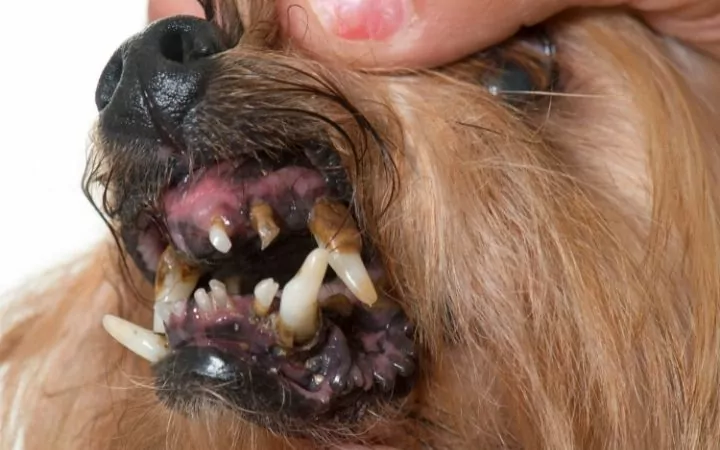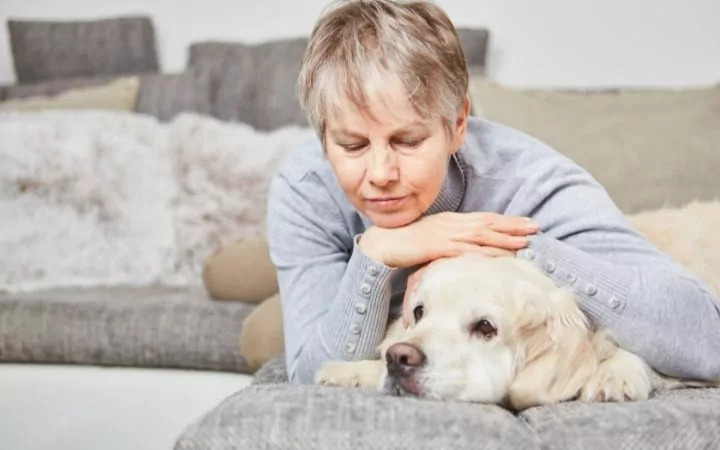We all get old at some point—it’s like part of the cycle of the circle of life! But unfortunately, aging progresses at a much faster rate in dogs than in humans. So as much as we want to be with them all the days of our lives, chances are they’ll be the first one to experience signs of aging.
When dogs age, they become less physically active, their hearing and vision are no longer as sharp as they once were, and they become more vulnerable to various kinds of diseases. As paw parents, the best thing we can do for them is to make the necessary adjustments and interventions to make sure they remain happy and healthy, even as they approach their twilight years.
Genetics and lifestyle play significant roles in your dog’s aging process. This means the earlier you introduce healthy habits into your pet care routine, the easier it will be to manage his health when he gets old.
How can pet parents help their fur babies live comfortably during their twilight years? Here are a few recommendations for caring for senior pets.

1. It all starts with a proper diet.
Of course, on top of our list is proper diet. What we feed our dogs on a daily basis will eventually manifest its effects in our pups physically, so it’s important to invest in quality, nutritious food for your Fido, even when he’s still young.
As your canine companion ages, make sure he gets a diet that contains essential nutrients needed to support him.
The following are just some of the nutrients you should include in your dog’s daily food intake:
- Antioxidants: helps fight cancer and enhance metabolism
- L-carnitine: prevents weight gain
- L-lysine and Taurine: helps with the development of strong muscles and bones
- Probiotics: enhances your dog’s digestive system
Incorporate food rich in Omega fatty acids in your dog’s diet as well. Omega has been proven to have many health benefits for dogs, such as reducing the effects of allergies and promoting healthy skin and eyes.
If your dog’s quite the picky eater or has a sensitive stomach, they can benefit from probiotic supplements or adjusting their food intake to a bland diet temporarily. For more feeding tips for dogs with sensitive stomachs, you can refer to this ultimate guide.

2. Keep your dog moving.
Once a dog starts to age, his or her metabolism rate also begins to drop. This increases the likelihood of obesity.
According to the Association for Pet Obesity Prevention, around 53% of dogs are either overweight or obese. This is quite an alarming rate, given that obesity can decrease a dog’s life span and increase his risk for various metabolic diseases and orthopedic complications.
Getting older dogs to go for a walk everyday can be challenging, but it will be worth it in the long run. Keeping him active can help maintain your dog’s weight and delay the physical effects of aging. You just need to be more careful in setting the duration and intensity of your dog’s daily exercise routine. When you notice your dog’s already having difficulty walking, consult your vet immediately. It’s important to adjust your dog’s exercise routine accordingly based on his overall health condition so as not to strain his muscles and bones.
It’s also recommended to stock up on NSAIDs, as these can greatly help in reducing discomfort and improving mobility on senior dogs. However, remember to only use products that are prescribed by your vet, as some medications can be dangerous when combined. If your dog starts to have problems with the joints, you can check out the best joint supplements and consult your vet about giving them to your dog.
3. Visit your veterinarian often
We cannot stress enough the importance of regular vet care, even more so for senior dogs. Older dogs have lower immunity levels, which makes them vulnerable to illnesses. AAHA recommends senior pets to undergo a general health check up every six months.
Setting aside time (and budget!) for your dog’s regular check up will help make sure that he has no clinically dormant health abnormalities. In case there are signs of a particular illness, detecting it early can increase your dog’s likelihood of survival and enhance his quality of life, even during his golden years.

4. Keep an eye on his oral health.
Teeth and gum ailments can cause excruciating pain in your dog’s mouth, thereby affecting his appetite. Germs and bacteria can also make their way from the gums into your dog’s bloodstream and can then affect his internal organs. This can be highly dangerous for senior dogs since their immune systems may already be compromised.
Make sure you have the right tools for brushing your dog’s teeth. Dog toothpaste and human toothpaste are not the same, and under no circumstances should you use human toothpaste to clean your dog’s mouth. If you’re not confident yet in brushing your pup’s teeth, you can bring him to a nearby pet care shop where a dog care expert can attend to his needs and check out our 5 Tips to improve your dog’s dental health.
You can also try getting your senior dog some chew toys or rubber frisbee discs (with the approval of your vet if he determines your dog’s teeth are still healthy enough). Chewing helps strengthen your dog’s jaw muscles, remove debris from his teeth, and provide flossing action to clean hard-to-reach areas of the mouth. Chew toys and rubber discs are also good for supervised playtimes to help stimulate your dog’s mental activity.
5. Make your home “senior dog-proof.”
Taking care of a senior dog can be challenging, especially for first-time pet parents. The fur baby you used to play around with everyday is now moving more slowly and finds it hard to see and hear things clearly. To help your aging dog go through his daily activities around the house easier, you need to make some adjustments to turn your home into a safe, senior dog-friendly space.
- Put some type of grip strip on the treads if you have slick stairs that pose high risk for slip or fall. Common examples are stairs made of wood or marble. The grip stips can help your senior dog go up and down the stairs safely.
- Hardwood floors can be slippery to walk on. For senior dogs with weak knees, this can be dangerous. To help him walk on slippery surfaces, try letting him wear dog boots with traction at the bottom. You can also give your dog a designated walkway by placing rugs with no-slip pads underneath around the house.
- As your dog gets older, his eyesight can also get damaged, even leading to blindness in extreme cases. It’s important to keep your home as clutter-free as possible to prevent him from bumping into things, especially in areas where he usually plays or walks. Try not to move things from their regular places as well so he can be familiar with the space.

6. Be there for your dog.
During this season of his life, your dog needs your extra patience and tender loving care. He might not be able to see or hear like before, but he definitely treasures every hug, kiss, and cuddle you give him. There might be times when your dog can get cranky or difficult to please, but that doesn’t mean your dog loves you any less. Senior dogs need our attention and patience more than ever, and as paw parents, we have to make sure their emotional needs are met.
It’s surely heartbreaking to see our fur babies grow old day by day and experience the difficulties caused by aging. The best thing that we can do is to be there for them, find ways to lessen their pain and discomfort, and fill their final years with love and care—just like how they showered us with joy and comfort in their own little ways, especially during the times we needed it the most.
